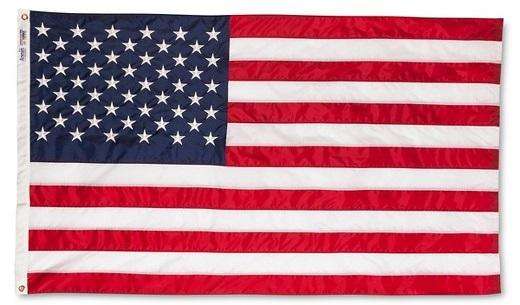Guidelines for Properly Display and Use
State and National Parks in the United States are cherished sites that embody the country's natural beauty, history, and cultural heritage. As these parks are representative of the nation, it is important to display and use the country's flag in a manner that aligns with national guidelines and traditions. This article aims to provide a comprehensive guide on the proper ways to use and display flags at State and National Parks, enabling visitors to show respect for the flag while enjoying these remarkable destinations.
1. Understanding Flag Etiquette:
First and foremost, it is crucial to understand the basic etiquette associated with displaying the national flag. The United States Flag Code provides essential guidelines for handling and displaying the flag respectfully. Familiarize yourself with these guidelines before venturing to a State or National Park to ensure you comply with proper flag etiquette.
2. Displaying the Flag at Parks:
When displaying the American flag at State or National Parks, adhere to the following guidelines:
- The flag should be on a sturdy flagpole or flagstaff, ensuring it is positioned appropriately, visible, and unfurled.
- Proper flagpole configuration means hoisting the flag briskly, lowering it ceremoniously, and never allowing it to touch the ground or any other object.
- If illuminating the flag at night, follow specific protocols to ensure the flag remains well-lit, as per United States Flag Code recommendations.
3. Flying a Flag at Half-Mast:
The flag is flown at half-staff to honor national figures or after a tragic event. When observing a flag at half-staff:
- Raise the flag briskly to the peak, then lower it to the midpoint between the top and bottom of the flagstaff as a symbol of mourning or respect.
- Flags should remain at half-staff until noon unless otherwise indicated by official instructions.
4. Displaying Multiple Flags
In certain instances, it may be appropriate to display multiple flags at State or National Parks, such as state, territorial, or military service flags. When displaying multiple flags:
- The American flag should be placed in the highest position of honor.
- Other flags should be sized proportionally to the American flag.
- Ensure each flag is positioned properly to respect the importance and symbolism of each flag.
5. Proper Storage & Maintenance of Flags at State & National Parks
Appropriate care and storage are crucial to maintaining the flag's appearance and integrity:
- Flags should always be handled with clean hands to prevent dirt and oil from transferring onto the fabric.
- Regularly inspect the flag for any signs of damage, such as tears, fraying, or fading.
- Flags should be placed in a suitable storage container when not in use to protect them from dust, moisture, and direct sunlight.
- Avoid folding the flag while it is wet, as this can cause it to develop mildew or mold.
- When folding the flag, follow the proper method of folding, such as the triangle fold, to minimize creasing and maintain its shape.
- Store the flag in a cool, dry place to prevent any damage caused by fluctuating temperatures or humidity.
- Avoid storing the flag in areas with excessive heat, such as attics or near heaters, as this can cause the fabric to deteriorate.
- If the flag gets wet or dirty, it should be gently hand-washed with mild detergent and cool water. Harsh chemicals should be avoided, as they can damage the fabric.
- Allow the flag to air dry completely before storing it. Avoid using a dryer or hanging it in direct sunlight, as this can cause the colors to fade.
- If the flag becomes severely damaged or worn out, it should be properly retired by burning it in a dignified manner or contacting local organizations that offer flag retirement ceremonies.
